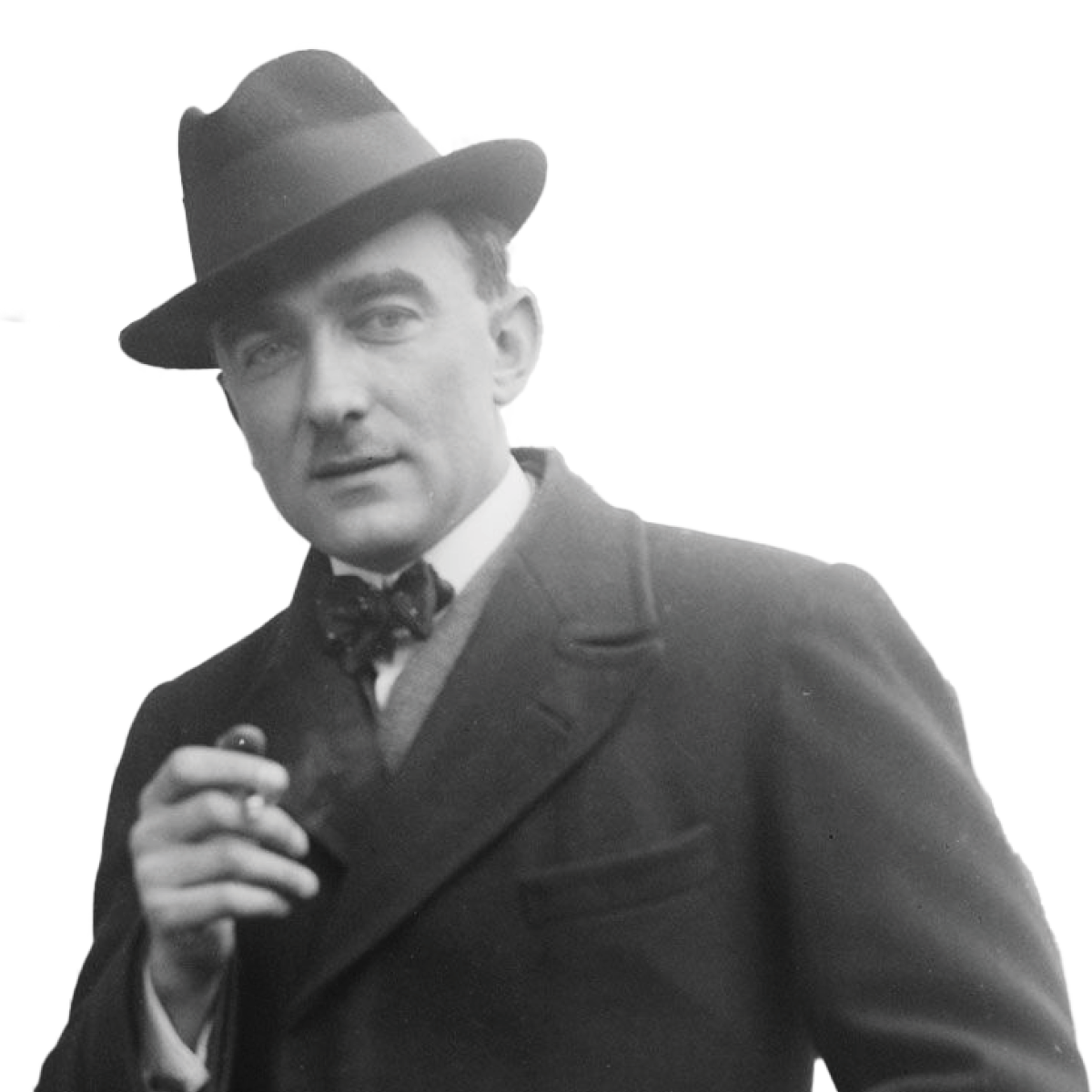
|
Concert Overture, Opus 12 |
Composed: 1904-05; revised 1910-13 Estimated length: 14 minutes |
|
Born on October 3, 1882, in Tymoszówka, Ukraine (then part of the Russian empire); Died on March 29, 1937, in Lausanne, Switzerland |
|
|
First performance: These are the Nashville Symphony's first performances of this work. |
|
|
First Nashville Symphony performance: February 2, 1906, with the Warsaw Philharmonic led by Grzegorz Fitelberg. |
|
Born into a Polish family of landed gentry, Karol Szymanowski studied at the Warsaw Conservatory in the first years of the new century. The Warsaw Philharmonic had just been founded, but disappointment over its conservative outlook prompted Szymanowski and a group of like-minded young composers to form a group to promote their ideas of musical progress. He wrote the Concert Overture for a special program devoted to new works by these composers that the Warsaw Philharmonic performed in February 1906.
The trailblazing tone poems of Richard Strauss cast a strong spell on young Szymanowski, which is obvious from the opening gestures of the Concert Overture—a young man’s response to the galvanizing force of works like Strauss’s Don Juan, itself the product of a young artist’s surging imagination. Szymanowski revised the orchestration several years later, hinting at the extraordinary ear for timbre and instrumental color that characterizes his mature work.
Although the title sounds neutral and self-contained, Szymanowski prefaced the score with apocalyptic lines by the contemporary Polish poet Tadeusz Micińsk hailing “with a wild song from the heart,” the replacement of the old order of gods by a new consciousness.
WHAT TO LISTEN FOR
A bold outburst summons the energies of the full orchestra, which is followed by a series of related ideas. The pace slows for music of swooning lyricism, marked Andante dolce amoroso. The rest of the Overture revolves around contrasts and combinations toggling between these active and ecstatic states, culminating in a blazingly heroic final proclamation.
Scored for 3 flutes (3rd doubling piccolo), 3 oboes (3rd doubling English horn), 2 clarinets, E-flat clarinet, bass clarinet, 2 bassoons, contrabassoon, 6 horns, 3 trumpets, 3 trombones, tuba, timpani, percussion, harp, and strings
− Thomas May is the Nashville Symphony's program annotator.